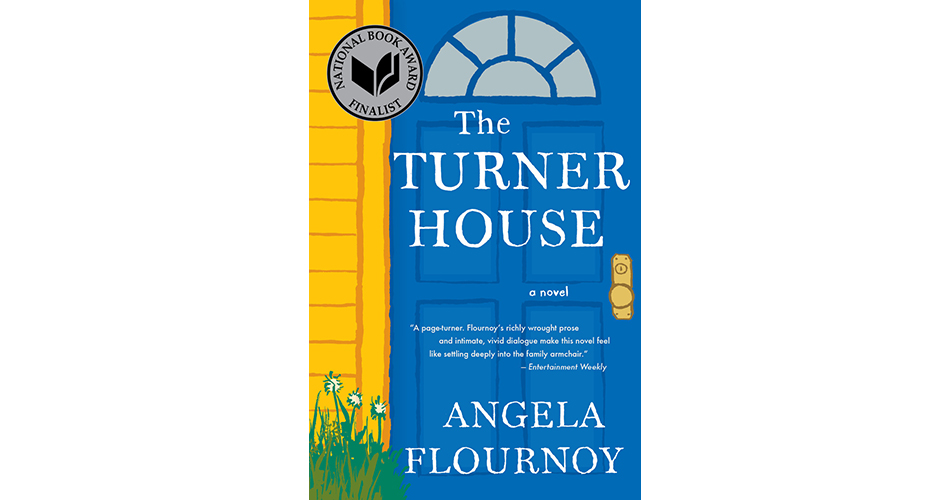In American vernacular, we often call a shameful or troubling past, “buried.” We know there’s some unfortunate event left unspoken, and to bring up those bodies is messy and largely unwanted. Instead, an order arranges itself around the unspoken, and we get used to the roles and assumptions needed to carry on with the silence. In Angela Flournoy’s new novel, The Turner House,a lot has gone unsaid, and it’s the potential sale of their familial home in Detroit as well as the literal return of a ghost that upends the arrangement.
The Turner Houseis a limited-omniscient novel set largely in Detroit in 2008. It tells the story of the Turner family, how Francis and Viola, the family’s parents, came to the city in the mid-1940s and eventually settled into their three-bedroom house on the Eastside. The present-day story focuses on Cha-Cha, Lelah and Troy, three of the family’s thirteen siblings. A haint, or ghost, that once haunted Cha-Cha in front of his siblings reappears as he nears retirement. Lelah is finally hitting bottom with her gambling addiction, and Troy’s scheming is catching up to him. While the specter of these ghosts rise, so, too, does the specter of the old familial home, now heavily over-mortgaged and essentially abandoned in the decaying city. The house, the city and the siblinghood bind these divergent stories together, but part of its tension comes from the siblings’ vastly different experiences of those three things.
Cha-Cha’s ghost is introduced to the reader in the first pages, but it quickly becomes family lore and a punchline. “Ain’t no haints in Detroit,” his father declares, shutting the topic off from discussion for 50 years. But the haint is as ever-present for Cha-Cha as it was in 1958, and no one in his family wants to discuss it in any meaningful way. “How would a person know if he was going insane? Cha-Cha wondered. There might exist a specific symptom, some indisputable

Author Angela Flournoy teaches at Princeton University. This is her first novel.
piece of evidence that would prove one unstable.”
This straightforward and profound question exemplifies one of the wonderful aspects of Flournoy’s novel. The thought appear to be only about Cha-Cha’s struggle, but actually reflect a larger question the novel is posing, and the lines themselves have an understated rhythm. How did their father, Francis, know he was losing his way, and how would Lelah know she had hit bottom? How could you be certain it was time to let go of the past, be it a ghost, a house or an addiction? At the same time, the book seeks to glean something about the present from that history. Cha-Cha seems to be asking, hoping, that talking about the past is useful in some way.
Cha-Cha tries to discuss some of the family’s past with his sister Francey. Were they traumatized growing up? Is that why he sees this haint? “We weren’t traumatized. Just poor,” she responds early in the novel. But as the story goes in, it becomes clear that all of them struggle with addiction, and all of them had their own traumas, be they at the hands of a spouse, an addiction or a father. But denial runs strong in the family. In that same conversation, Cha-Cha mentions their alcoholic father’s depression, his sister balks. “Since when did you decide he was depressed?”
From this single line, the reader understands that Francey’s experience of her father and family is different than Cha-Cha’s, and that’s its own disappointment, for Cha-Cha and for the reader. While logically most of us know that siblings experience their families differently, usually we also hold out the hope that of all the people in the world, these individuals will ‘get’ us and support us in our time of need. Even when those around us try to supply that support, it doesn’t always turn out to be what we needed.
Flournoy does an excellent job of telling a compelling, character-driven story with enough plot to make the reader wonder about its resolution. Her use of limited-omniscience goes a long way in drawing parallels between the lives of Cha-Cha, Lelah, and Troy, but it’s the blend of disparate plots and strong characters that keep her themes subtle. Within that subtlety is a story about a siblings, their beloved city and home, and the hope that looking to the past will help them rebuild or build anew.




Social